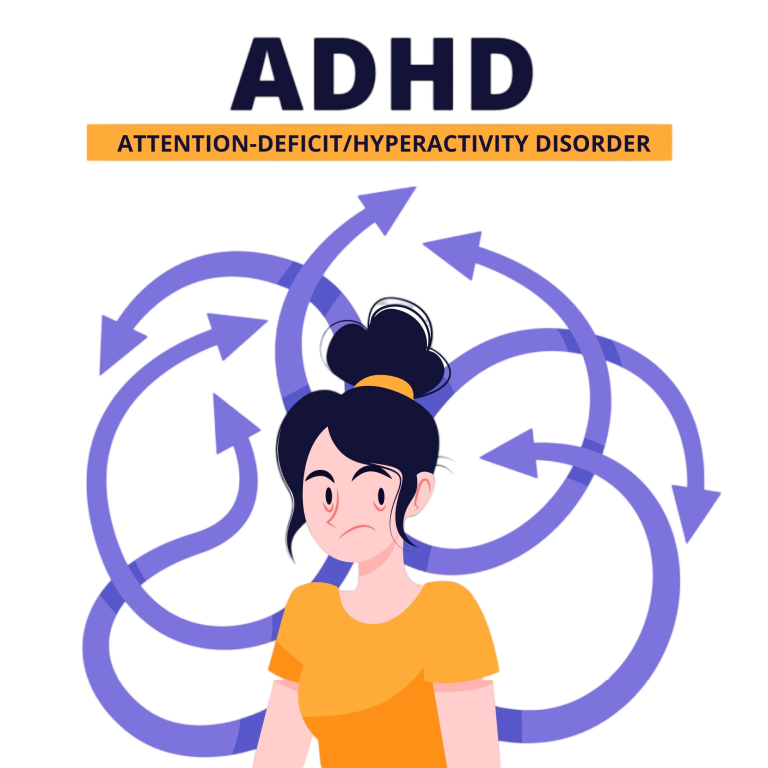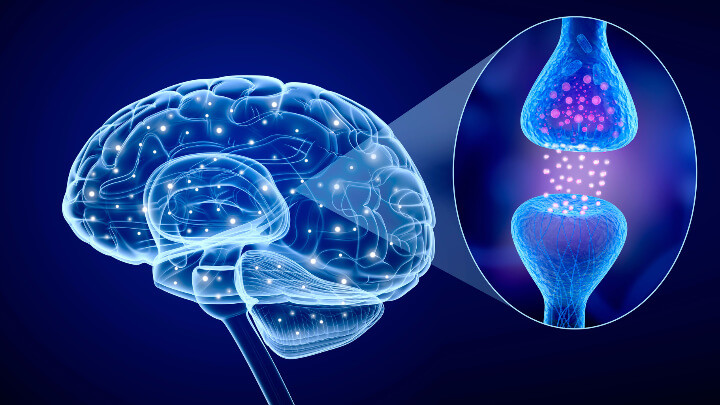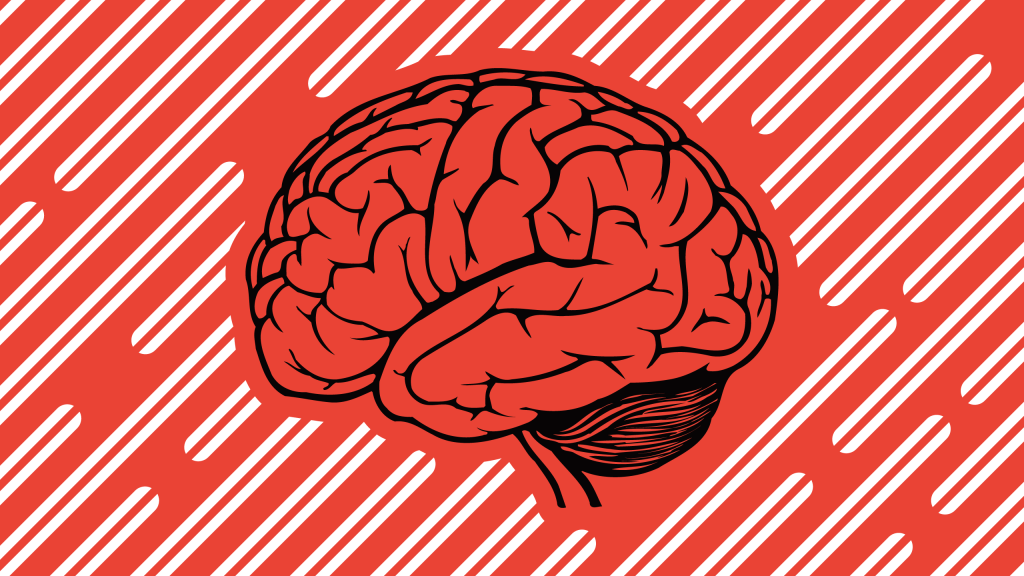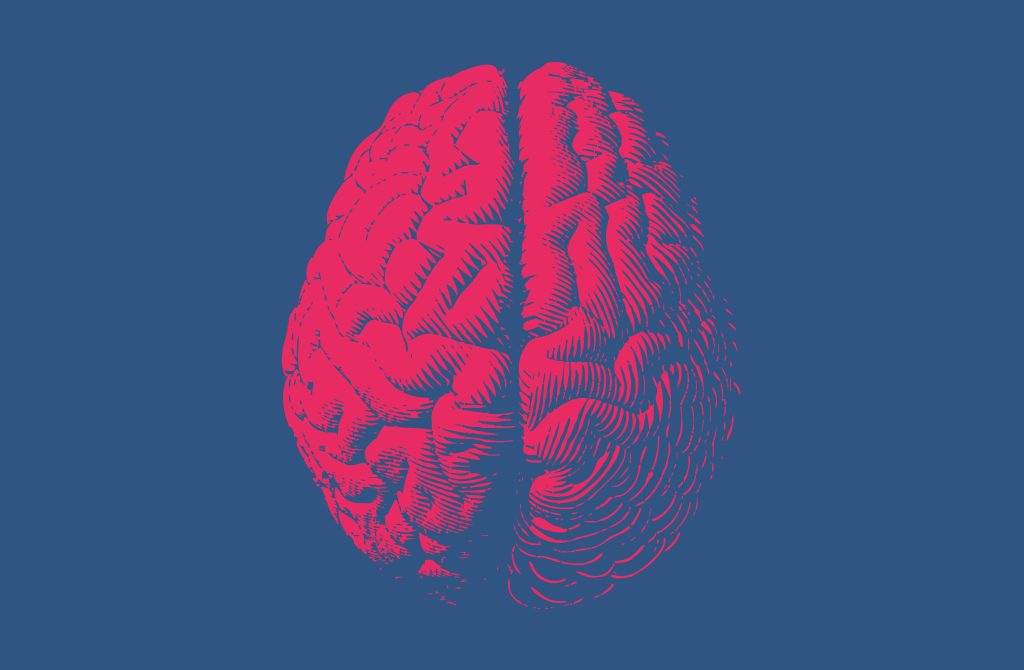

“Everyone is a genius. But if you judge a fish by its ability to climb a tree, it will live its whole life believing that it is stupid.”- Albert Einstein.
ADHD, or Attention-Deficit/Hyperactivity Disorder, is a neurodevelopmental disorder characterized by a persistent pattern of inattention, hyperactivity, and impulsivity that interferes with functioning or development. It is commonly diagnosed in childhood but can continue into adulthood. ADHD symptoms are generally categorized into two main types:


The exact causes of ADHD remain unidentified, though research suggests that genetics play a significant role. While several genes have been associated with the disorder, no specific gene or combination of genes has been definitively identified as the cause. It is noteworthy that individuals with ADHD often have relatives who are also affected. Neuroimaging studies have revealed anatomical differences in the brains of children with ADHD compared to their peers without the condition. For example, children with ADHD typically show reduced volumes of grey and white matter and exhibit different activation patterns in certain brain regions during tasks (Pliszka, 2007). Key areas affected include the frontal lobes, caudate nucleus, and cerebellar vermis (Tripp & Wickens, 2009). Additionally, several non-genetic factors have been linked to ADHD, including low birth weight, premature birth, exposure to environmental toxins (such as alcohol, tobacco, and lead) during pregnancy, and extreme stress experienced by the mother during pregnancy.
ADHD symptoms can sometimes be masked until adulthood because childhood often is structured by parents, school and other activities. ADHD often remains undiagnosed in adults, leading to significant challenges like chronic stress and low self-esteem. Diagnosing ADHD in adults can be complex, as symptoms must have appeared before age 12. Many adults with ADHD also face comorbidities like anxiety and depression, which can exacerbate their struggles. Without effective treatment, chronic stress from untreated ADHD can severely impact self-esteem and lead to feelings of underachievement. Despite the hurdles, receiving an ADHD diagnosis can be transformative. Studies show that adults with a formal diagnosis report higher quality of life and improved self-esteem compared to those without. Treatment typically involves a combination of behavioral strategies, such as cognitive-behavioral therapy (CBT), and medication, which together enhance functionality. For many, a late diagnosis brings mixed emotions, including grief over missed opportunities and relief from finally understanding their struggles.
Conditions That May Mimic ADHD
Several medical conditions and treatments can produce signs and symptoms similar to those of ADHD. These include:

Therapy can be highly beneficial for managing ADHD symptoms in several ways. One of the primary approaches is behavioral therapy, which focuses on changing specific behaviors and developing skills to improve organization, time management, and impulse control. This can help individuals to create structured routines and better cope with daily challenges. Evidence-based treatments for ADHD include a range of approaches that can be used individually or in combination to address the specific needs of individuals. For instance, behavioral therapy focuses on modifying specific behaviors associated with ADHD through techniques such as reinforcement strategies and organizational skills training, alongside parent training for effective behavior management. Also, Cognitive behavioral therapy (CBT) is another valuable method, helping individuals develop coping strategies and problem-solving skills while addressing negative thinking patterns and improving self-regulation. Additionally, social skills training helps individuals with ADHD develop better interpersonal skills, enhancing their ability to interact with peers and build relationships.

Having ADHD can significantly impact relationships in various ways. Individuals with ADHD may struggle with attention, impulsivity, and emotional regulation, which can lead to misunderstandings and frustrations in interactions with partners, family members, and friends.
One common issue is difficulty with communication. People with ADHD might miss important details in conversations or have trouble staying focused, leading to feelings of being unheard or ignored. This can create tension and resentment in relationships. Impulsivity can also affect decision-making and social interactions. Spontaneous actions or comments may be misinterpreted, leading to conflicts or hurt feelings. Partners may feel overwhelmed by the unpredictability that sometimes comes with ADHD behavior. Additionally, emotional dysregulation can result in heightened reactions to stress or perceived criticism, which can strain relationships further. The frustration of managing ADHD symptoms can lead to feelings of inadequacy or low self-esteem, affecting how one interacts with others. However, understanding and open communication can help mitigate these challenges. Couples or family therapy can provide strategies to improve communication, foster empathy, and create a supportive environment. With the right tools and support, individuals with ADHD can build and maintain healthy, fulfilling relationships.
What to Expect in ADHD Testing:
How ADHD Testing Helps:
What to Expect in ADHD Treatment and Therapy:
Approaches We Use for Treating ADHD:
Welcome to Psychology and Beyond, LLC. Our core values include a celebration of diversity, a strength-based approach, and connectedness.
Seamlessly visualize quality intellectual capital without superior collaboration and idea sharing listically
© 2022 • Psychology and Beyond, LLC
Design and Developed by Algor Labs brand of Split Arts